“Water just kept dribbling out of their mouths,” the founder of ONE Intervention recalls. “They were trying so hard… but it just wouldn’t stop.
It’s been years, but the memory is still crystal clear: The teacher- red faced, flustered, almost shouting to keep the class in order.
And the children — they were trying their best. Their hands trembled as they lifted their cups to drink. Water spilled from the sides of their mouths, soaking their uniforms.
Grace pauses and gives me a small, tired smile. “They were really trying,” she says. “But the teacher was too overwhelmed to give them the help they needed.” Somberly, Grace goes on to explain to me the struggles of the children at the special needs school she volunteered at.
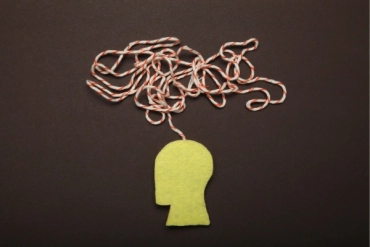
It wasn’t that the children lacked ability, Grace explains — they simply needed more support.
With the right guidance and patience, they could complete their tasks. But at the school where Grace volunteered, resources were limited. The teachers were doing their best under difficult conditions, often stretched thin just trying to manage their daily lessons. This made it challenging to provide the individual attention that some students needed.
“You can’t expect people to be loving and caring when they are overwhelmed and unsupported,” Grace says softly.
As a young adult, that defining moment left a deep impact on ONE’s Intervention’s founder. Grace explains how it continued to resonate with her even beyond university, sparking the inspiration to set up ONE Intervention Centre.
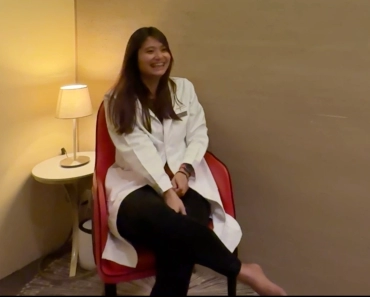
ONE “玩” Intervention
The Centre prides itself on the specialised attention that it offers to each and every one of its students. With a maximum ratio of 1 teacher to 3 students, it’s easy to see that ONE fulfills Grace’s dream of giving every child the passion, patience and resources they deserve.
When asked why she decided to name the Centre ONE, Grace laughs easily.
“The name ONE came from a parent’s suggestion,” she explains, “she knew I wanted to set up a Centre by myself, and thought up of the name after many days and nights.”
‘ONE’, Grace repeats, sounds like 玩 (wán), the Chinese word for “play”—which felt perfect, as play was at the heart of how she taught their son.

Perhaps sensing some of my skepticism (a teacher through and through), Grace goes on to explain what she means.
ONE Intervention’s founder always made learning that her student playful. Through that, he grew and improved. The name beautifully reflects the Centre’s startlingly honest philosophy: Learning through play, with joy and purpose.
Grace’s approach to teaching is deeply rooted in play oriented learning. That is to say, ONE Intervention imparts lifelong lessons on its students through the simple vehicle of play. The point is stressed multiple times throughout this interview with ONE Intervention’s founder.
A silly game on the park swings may not seem particularly enlightening, but Grace explains that for her students, it’s actually very enriching. The swinging trains their vestibular sense – the part of their body that registers and processes motion. And by taking turns on the swing, the children learn respect and communication with each other.
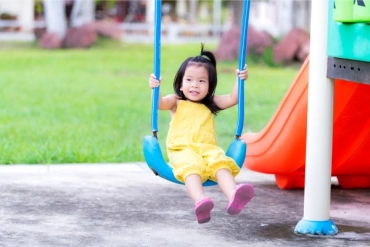
“I work at a playground,” ONE Intervention’s Founder jokes.
“I work at a playground,” she jokes. Leaning back in her wide office chair, Grace gestures at the bins full of toys in the corner of the Centre. Plastic cooking utensils and the velcro straps of half-chopped toy vegetables can be seen peeping out from the tops of each bin.
ONE certainly lives up to its philosophy. The Centre boasts a rock-climbing wall, outfitted with colourful floor-to-ceiling climbers. Hula hoops are slotted neatly between the shelves and walls. Slumped in a corner of the office is a well-loved rope swing.
Grace’s day revolves around mentoring and guiding the little ones through such play. Stacks of forms, workbooks and assessments are piled on her desk, nestled between tall folders of various psychology references.
As the Founder of ONE Intervention, she takes responsibility for tracking each child’s progress. This is done through creating individualised plans and expert strategies adapted to suit each child’s unique needs.
“I worked on an IEP this morning – individualised education plan,” she explains, “and then played with the kids. Well, I say play, but they’re actually learning a lot!”

“Like this child I have, he really loves vehicles.” That morning, their lesson involved placing the stuffed koala on top of a plastic truck, pretending that the marsupial was driving. This playful interaction, while appearing superficial, encouraged creativity and engagement.
Another child, fascinated by puzzles, was guided to cut out shapes and paste them onto worksheets, reinforcing fine motor skills and spatial awareness.
It’s clear that everyday at ONE has been planned out with loving devotion to be dynamic, filled with moments of joy, growth, and discovery – all rooted in the power of play. Grace wouldn’t have it any other way.
“Yeah, there are challenges at times,” she laughs, “because I need to balance the needs of each child with supporting the teachers. And I want every single programme to be effective for the kid, so I have to take care of that too.”
When asked about what keeps her grounded throughout all the long hours and emotional work, Grace shrugs. “I make a real impact each day.”
It’s not just seeing a child learn how to communicate, regulate emotions and gain their independence, Grace clarifies. Although those are obviously rewarding in and of themselves, her real motivation is the knowledge that her actions change the entire family’s life.
It takes a village to raise a child – a fact proven again and again throughout this interview with ONE Intervention’s founder.
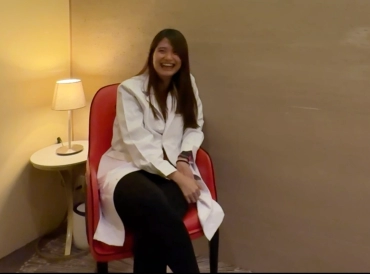
A Village To Raise A Child
She’s seen it first-hand. As a child psychologist, she’s worked with parents pushed to their limits — some so stressed they’ve quarrelled, broken down, or even thought about divorce. But she’s also witnessed the healing. The way families become more understanding, less frustrated, and start to hope again.
“One moment really stuck with me,” Grace recalls. “I was doing home-based therapy, and I saw the brother of my student slap their mother — out of pure stress.”
She later found out that the family had been discussing plans for the future. The brother had wanted to exclude the student from their plans, but the mother refused. Privately, the mother told Grace that her older son felt embarrassed to have a sibling with special needs. What broke her heart the most was when, on his birthday, the boy said his one wish was to have a family outing — without his brother.
Grace wasn’t shocked. Instead, she felt a deep sadness and empathy for both the brother and the mother.
“That day, I told myself — if I can help children like my student improve, maybe things like this won’t have to happen,” she says quietly. “Because when one child struggles, the whole family struggles. But when a child progresses… wow. The whole family heals.”
It’s this ripple effect that drives Grace every day. Every small step forward — a new word, a moment of calm, a shared laugh — isn’t just a win for the child. It’s a win for their parents, siblings, and everyone who loves them. And for Grace, that’s what makes it all worth it.
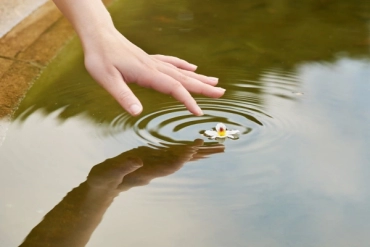
“Patience is key,” ONE Intervention’s founder affirms.
However, even for the best of them, teaching can be frustrating on some days. Grace takes it all in stride. For her students who don’t make as much progress, Grace is determined to continue helping them discover and navigate the world.
“Patience is key,” she affirms, “I just have to understand their unique ways of communicating. It takes time.” For her, even the smallest breakthrough counts as a victory and further motivates her to keep giving her absolute best for the children.
It’s not entirely thankless work, either.
“Once, when a colleague jokingly hit me, my student rushed over to defend me,” she recalls fondly. “And another time, I screamed because I was terrified of a spider. But one of my students rushed over and chased the spider away. They said, ‘Teacher Grace, don’t be scared. I’ll protect you!”
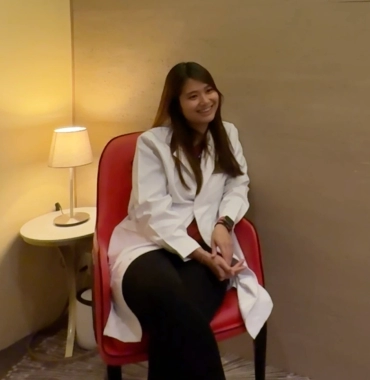
Considering that her students are quite literally children, their show of selfless chivalry is certainly admirable.
She remembers that on the days that she is unable to come to the school, some of the children might even throw tantrums.
“I actually don’t know why they love me so much. Some days, I have to scold them because they’re doing something unsafe, and they might cry. But the next day, they’ve completely forgotten the scolding and are happy again.”
Grace believes that these simple moments have taught her so much about unconditional love and loyalty. “I truly believe that they want the best for me. It’s the purest kind of care.”
As a child psychologist with over a decade of experience, it’s understandable to assume that she would have done differently in her long career. At the very least, there has to be a piece of advice that she would love to hear when she was younger – even the best of us do.
However, when asked about this, Grace only laughs and spreads her hands out. “To my younger self?” She gives a moment of cheeky deliberation. “You’re doing a great job, I guess. Keep doing it.”
In all seriousness, Grace explains that she studied counseling. Over the course of her university life, her lecturer insisted that she had to constantly reflect on life: If today were the last day of your life, Grace quotes, what would you regret?
She’s made it a habit to simply not regret anything, and to live each day as if it’s her last.
Having previously worked in a hospital, Grace is intimately familiar with the coming and going of life. Unlike most people, the idea of death does not intimidate her – in fact, Grace actively seeks for thrills that make her feel that much more alive.
“I went diving,” Grace explains, “and had a near-death experience. But apart from knowing that my death would really sadden my parents, I actually had no regrets.”

Advice For Budding Psychologists
What of budding psychologists, I ask, is there anything that you might caution them against, that they might regret?
Her reply is succinct and sure.
“Theories and books are important, but there are a lot of things not recorded in books. It’s good for you guys to experience life, volunteer and observe how real life situations are. That’s where true learning happens.”

Final Thoughts
In the single year since it has been founded, ONE has certainly come a long way in enriching the lives of its students. The school has been a safe haven of learning, playing and exploration – and this interview with ONE Intervention’s founder makes it clear that Grace is seeking to make it even better.
“We’re expanding our Centre and searching for a new unit to meet the growing demand for enrolment,” she leans forward conspiratorially. Currently, the Centre operates on a model of 1 to 2 students a session, with up to 3 teaching staff and 2 volunteers.
This means that sometimes, there are more staff than students – and that’s intentional. This enables the ample support and attention provided to each student.
“Every child who joins us has to be the right fit – not disrupt the progress of other students. It’s also very important to me that my staff are well-supported and not overwhelmed by the number of students.”
Having too many children and too few teachers often means some kids get left behind — and Grace still remembers the image clearly: children with water trickling down their mouths, trying their best, but not getting the help they needed.
“That will never happen at ONE,” she says firmly.
“Every spark matters when it comes to learning,” Grace adds. “If there’s one thing I hope for as a child psychologist, it’s this — I want my teachers to embrace the chaos. Because working with children with special needs… it’s not always a smooth ride.”
She points to the glowing sign on the wall behind her: “Occasionally In Chaos.”
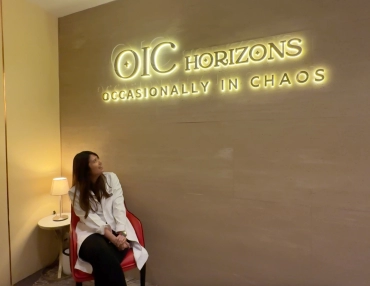
With a smile, she says, “If you can survive — and enjoy — the ups and downs, that’s when the real magic happens.”


